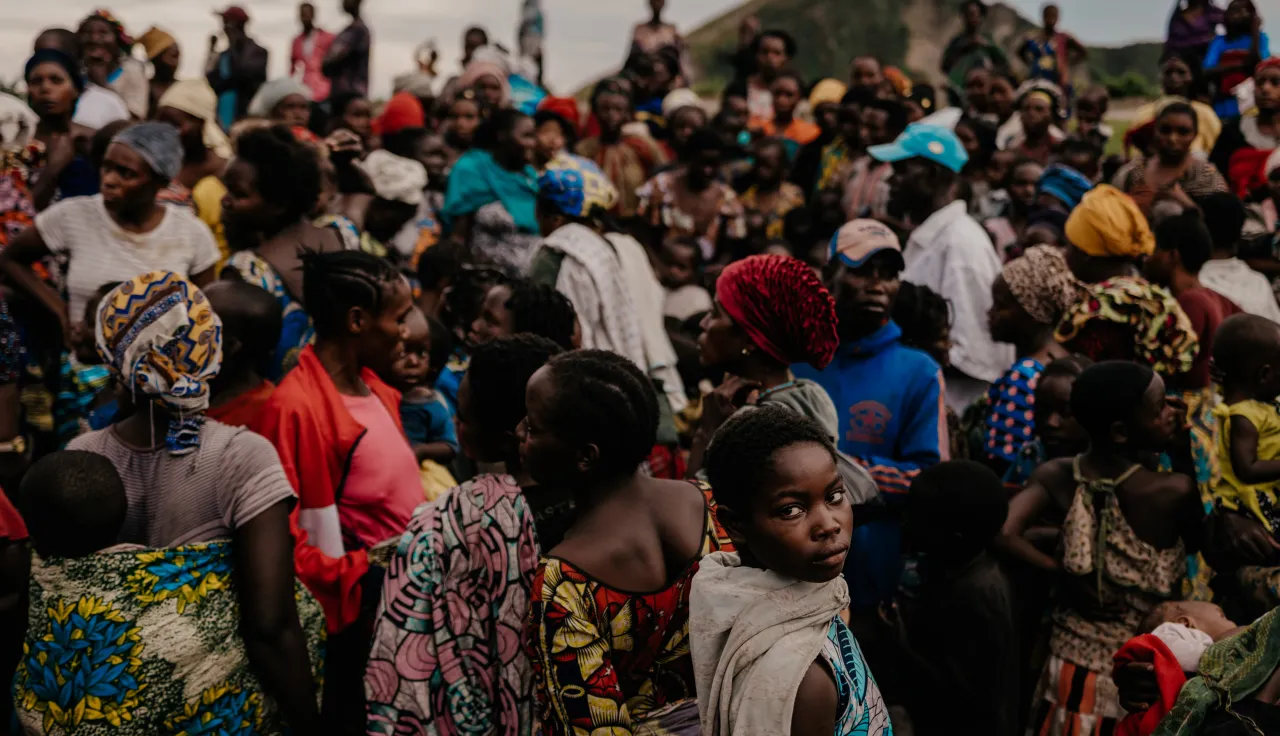
Choose amount and frequency

Please scan the QR code to complete your donation
We accept cryptocurrency donations for one reason: trust. Every donation is recorded on-chain with full transparency. We use stable USDT to avoid depreciation, reject bank fees, and protect your privacy. To ensure security and freedom, we only accept donations from decentralized wallets. Your support stays visible, private, and truly independent.
 MetaMask
MetaMask
 Trust
Trust
 ImToken
ImToken
 TokenPocket
TokenPocket
 Bitpie
Bitpie
 Bitget
Bitget
 TronLink
TronLink
 SafePal
SafePal
 Coinbase
Coinbase
 Rainbow
Rainbow
 Zerion
Zerion
 MathWallet
MathWallet
 ONTO
ONTO
 Keystone
Keystone
 OneKey
OneKey

Geneva (ICRC) — As conflict rages in the eastern Democratic Republic of the Congo (DRC), driving mounting death, injury, and destruction and forcing tens of thousands to flee across borders for safety, the president of the International Committee of the Red Cross (ICRC), Mirjana Spoljaric, called for urgent and concrete action to be taken to uphold international humanitarian law (IHL) and protect civilians from the horrors of war.
At the end of a three-day visit to Rwanda and the DRC she said: “Now is the moment to break the vicious cycle of conflict that has condemned generations of civilians to endless suffering, loss, and displacement. Humanitarian steps taken now to protect civilians would not only save lives today but also lay the foundation for the long-term stability that communities desperately need and deserve.”
As a neutral intermediary, the ICRC began accompanying hundreds of disarmed Congolese soldiers and police officers as well as their families from Goma to Kinshasa on 30 April. This complex operation, which crosses frontlines and spans close to 2,000 kilometres, is being conducted at the request of the DRC government, MONUSCO, and the Congo River Alliance/M23 Movement. Over 800 people have been brought to Kinshasa so far as part of the operation.
“I hope this operation can create momentum for further humanitarian agreements that tangibly reduce suffering,” said President Spoljaric. “The ICRC stands ready to support such agreements as a neutral intermediary.”
During her visit to the region from 6 to 8 May, she met with leaders from both countries, as well as with leadership and volunteers of the Rwanda Red Cross Society and the DRC Red Cross Society.
Ongoing conflict has fuelled a wider crisis in the Great Lakes region with millions of people displaced from their homes within DRC and across its borders. The humanitarian situation in North and South Kivu is particularly dire. Since January 2025, ICRC-supported medical facilities have received over 2,000 wounded patients, the vast majority of whom are civilians. Hospitals are overwhelmed, and essential services such as water, sanitation, and education are in jeopardy due to widespread infrastructure damage. The threat of explosive weapons and remnants of war in populated areas, widespread food insecurity, and outbreaks of disease further endanger the lives of civilians.
“We must never see this level of suffering as an inevitable consequence of conflict,” said President Spoljaric. “International humanitarian law must be respected to protect civilians and the infrastructure they rely on for their survival. Limiting brutality in war can also help pave the way towards peace.”
About the ICRC
The International Committee of the Red Cross (ICRC) is a neutral, impartial and independent organization with an exclusively humanitarian mandate that stems from the Geneva Conventions of 1949. It helps people around the world affected by armed conflict and other violence, doing everything it can to protect their lives and dignity and to relieve their suffering, often alongside its Red Cross and Red Crescent partners.
For further information, please contact:
Eléonore Asomani, ICRC Kinshasa, easomani@icrc.org, +221 781 864 687
Fatima Sator, ICRC Geneva, fsator@icrc.org, +41 79 848 4908
